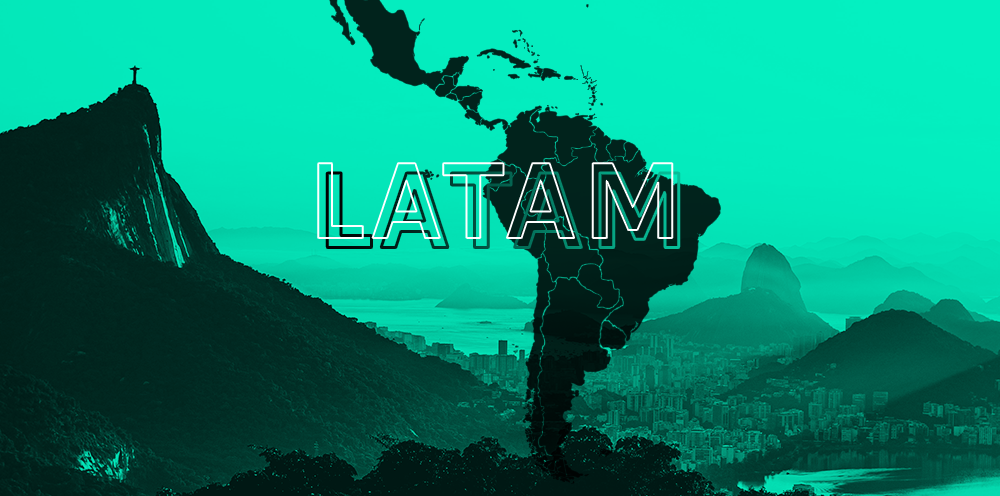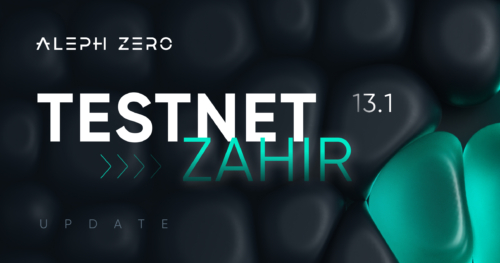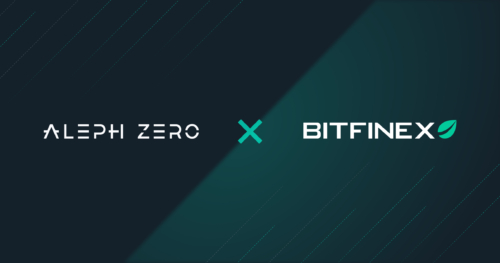Blockchain Adoption in Latin America Will Benefit Its Growing Economies
Sep 4, 2021

There has been significant development in blockchain technology within Latin America — as the political elites of these countries rush to capitalize on these novel technological solutions.
Latin America (LATAM) has become a whirlwind of blockchain activity as numerous startups have stepped onto the market, offering novel solutions to the reigning issues. Recent years have brought about a radical shift in thinking as the region’s political leaders, and entrepreneurs alike have witnessed emerging innovations the world over and begun implementing them. Notably, blockchain technology has made waves and is being implemented at a dazzling rate. It presents solutions to countless issues negatively impacting these growing economies.
For many years, Latin America has gone through numerous setbacks that have caused it to drift from a political and economic perspective. This “falling behind” coined by the noted political theorist Francis Fukuyama had as much to do with the interventionist politics of the United States — as well as with numerous blunders conducted at local levels. State intervention, economic nationalism, capital control, and an unstable political scene have stunted growth in this promising region.
Decentralizing Administrative Procedures Through Blockchain Adoption
The prominent Peruvian economist Hernando de Soto has stressed the importance of streamlining public records and bureaucracy. This is an effective way to unleash the full potential of the underprivileged citizens of a society. The lack of access to transparent databases in emerging economies cuts off entire swathes of the population from documenting their economic activities and assets. This makes them virtually invisible to the system they are a part of. This systemic blindness results in denied access to bank accounts, insurance, and loans (three crucial elements that permit a person within modern society to move up the societal ladder).
The most important thing to foster economic growth among the less privileged is to create systems in which trust between governing bodies and the populace can be fostered. This is important because, as the Lima-based Institute for Liberty and Democracy believes, at least 9.3 trillion dollars worth of “dead capital” resides in the world economy. By “dead capital,” we mean all the assets owned by particular citizens for which there is no documentation. This lack of accurate reports on property ownership makes it difficult for the unprivileged to access the systems that would allow them to monetize their assets.
Giving Land Back to the People Through Blockchain-Based Databases
Blockchain technology can accelerate this crucial transformation by creating an easy-to-use database that will permit conducting property registration more fluidly. This is an area in which Aleph Zero can find adoption. Land registries can be airlifted to the blockchain permitting everyone to register and verify the ownership of their property. This has been pioneered in Georgia, where storing documents concerning land ownership rights on the blockchain became normal practice. There is no reason for such a system not to work in Latin America as well. To facilitate this transformation, the technology will have to be user-friendly and transparent. These are two crucial elements for populaces exhausted from years of dealing with inefficient bureaucracies. Creating such a system can unleash trillions of dollars into the world economy and will better the lives of millions of people.
One of the startups pioneering this use case is the Swedish initiative ChromaWay. This company has been cooperating with the governments of Bolivia, Peru, and Paraguay to create transparent land registries. The Inter-American Development Bank provides additional institutional support for the project. One of the key points of the project is to reassess indigenous land claims and ensure their property rights.
Creating a Culture Keen on Investment Opportunities
One of the hurdles facing Latin America is the lack of robust investment culture. Attempts to mimic the successes of venture capital initiatives that flourished in the United States or Scandinavian countries have not been very lucrative. Several reasons result in such models of behavior, but one of the main differences is the lack of investment opportunities. For example, the stock market value in Colombia is less than 40% of the nation’s GDP. The largest stock market in Latin America is in Brazil, and even its stock market only accounts for approx 64% of its GDP. Contrast this with the stock market of the United States of America, where market capitalization in 2019 was 158% of GDP.
How can blockchain help incentivize investing?
First of all, we need to understand that the number of hurdles for potential investors in Latin America is quite large. The public stock exchange does not list most companies. Usually, only a few large companies have a place on the stock market. This creates an atmosphere that isn’t particularly exciting and yields relatively small yearly returns. This results in capital moving abroad to search for more compelling investment opportunities. Another factor is the lack of exit opportunities. This results in low liquidity and difficulties in moving capital within national markets. Corruption and dense bureaucratic procedures are also contributing factors that limit the drive for investment.
Blockchains and novel smart contract technology have brought earth-shattering changes to the market. The technology allowed for increased liquidity, simplified exit strategies, and reduced corruption. The technology fosters transparency and allows small businesses and startups to bypass traditional funding models. It also means that investors can avoid dealing with the bureaucracy of banks and government institutions.
Cryptocurrencies as a Store of Value
One of the most surprising aspects of Latin America is the meteoric adoption of cryptocurrencies in recent years. A pioneer in this field is El Salvador. The country made headlines this year by adopting Bitcoin as legal tender. This bold move is an attempt to combat inflation. The intention is to control the country’s monetary policy by tying the country’s future with Bitcoin. The ambitious plans adopted by this small nation include creating a national digital wallet, making Bitcoin transactions exempt from capital gain tax, and granting foreigners residency status if they invest three Bitcoins into the country.
This fact has a lot to do with differences in perception regarding monetary policy in developed countries and countries that are still developing or going through economic turbulence. Citizens in countries that are not experiencing high inflation rates tend to distrust the volatile cryptocurrency market. This lack of trust stems from a fear of novelty. We can solve this problem through education and by adopting stablecoins with low transaction fees. The cryptocurrency market’s volatility seems tame compared to the extreme inflation and fluctuations that occur to currencies in Latin America. Considering that cryptocurrencies have generally been bullish throughout their run, the occasional dramatic dips that occur are facts of life that are easier to come to grips with while still offering a superior store of value than traditional means of storing value.
Blockchain Facilitating Remittances in Emerging Economies
Venezuela is a prime example of this phenomenon. Citizens use cryptocurrencies as hedges against inflation and to transfer remittances from abroad to family members. This circumvents traditional institutions and unreliable money senders. A popular app to send remittances from abroad is Valiu. Due to economic turmoil, over 4 million Venezuelans have been displaced and have sought economic refuge abroad. For those remaining inside the country, remittances are a crucial lifeline. The population ravaged by hyperinflation and sanctions resulted in blockchain adoption accelerating. Chainalysis has ranked Venezuela third on its Global Blockchain Adoption Index due to significant remittances being transferred via cryptocurrencies. In May, the popular trading platform Binance reported that operations conducted in the region had increased 75% since May despite Bitcoin’s price globally falling. Mainstream companies have also adopted cryptocurrency payments, with Pizza Hut, Church’s Chicken, and some supermarkets leading the way.
The Cash Economy
Due to the lack of access to traditional financial institutions and volatile monetary policies, the countries of Latin America have a highly developed market in which the dominant form of currency is the American dollar. Argentina is a prime example of this. According to a report by the economic daily La Economista, Argentinians own about eight percent of the world’s stock of physical dollars. The official number actively circulating in the financial system is pegged at $130 billion, with an additional $175 billion secured “under the mattress.” Cryptocurrencies are used to circumvent traditional currency exchange centers as the P2P networks offer more competitive exchange rates.
The potential for cryptocurrency adoption in Argentina has accelerated in recent years. Bitcoin mines have moved to Argentina to take advantage of the cheap energy prices. Miners have also taken advantage of the Patagonian climate that helped reduce cooling costs. Aiding this process is the sluggish pace at which regulatory bodies are taking notice of this novel technology.
Regulatory Responses to Blockchain Adoption in Latin America
The governmental response to blockchain adoption has been varied. Countries like Bolivia banned the use of cryptocurrencies altogether, even fining citizens for engaging in trading. Argentina has responded only by enforcing taxation on cryptocurrency assets. Currently, the government taxes cryptocurrencies at 15%. Brazil introduced resolutions that made it perfectly legal for blockchain initiatives to operate without fear of reprisals from the Brazilian Securities and Exchange Commission (CVM).
Similarly, like in Argentina, cryptocurrencies are taxed. The tax rate varies from 15% to 22.5%. Colombia and the Dominican Republic conversely possess no regulation. Despite the Colombian government positioning itself against blockchain projects, the country possesses the largest number of bitcoin ATMs than any other country in Latin America. Personal cryptocurrency trading is not taxed. Only businesses have to declare profits gained from cryptocurrency activities.
Venezuela and Its National Cryptocurrency
Lastly, Venezuela created in 2019 an official government body to regulate cryptocurrency adoption in the country. The official cryptocurrency market, though, is dominated by the nationally sanctioned cryptocurrency called Petro. Civil servants and public figures receive some of their salaries in Petro. Blockchain projects concentrated around other coins usually operate from abroad. The local market is dynamic, with many projects seeking to establish themselves amid the political turmoil. The biggest department store in the country, Traki, accepts payments in cryptocurrencies. We should strive to see the silver lining in the government’s interventionist policies in the cryptocurrency market. It resulted in most of the population having some notion of what blockchain technology is. This educational aspect is crucial as the biggest hurdle towards wider blockchain adoption in Latin America and worldwide is the lack of public awareness.
“Undeveloped economies and unbanked users are a great context to introduce solutions based on decentralization, economic freedom, and borderless commerce. In Latin America, Bitcoin and blockchain is not an alternative system to seek better ideals but a tangible solution for the many challenges that our region faces. The adoption of this tech is not an option, but a necessity”
Alberto Guerrero Montilla, co-founder of criptotendencias.com and Venezuela Blockchain
Aleph Zero in Latin America
Latin America is a region that offers as much potential as it does intricate problems that need solving. We are proud to possess strategic partners, Necker Ventures, who not only assist us in learning more about the needs of the region but also believe that Aleph Zero has a role to play in solving some of these issues, for example in the Dominican Republic.
The Dominican Republic is an upper-middle-income country with low and stable inflation. Notably, it is the second-largest economy in the Caribbean. It trails just behind Cuba and is the third-largest country by population (behind Cuba and Haiti). The DR is the favorite country for foreign investors in the Caribbean region. However, the country’s competitiveness suffers due to the poor quality of its infrastructure. Improvements in various sectors throughout the country are urgently needed and will require robust solutions to implement.
Blockchain technology has the potential to solve many of the problems mentioned above. We will be initiating a series of articles where we will be diving deep into particular countries and exploring how blockchain technology can sow positive disruption. New insights are on the horizon!

